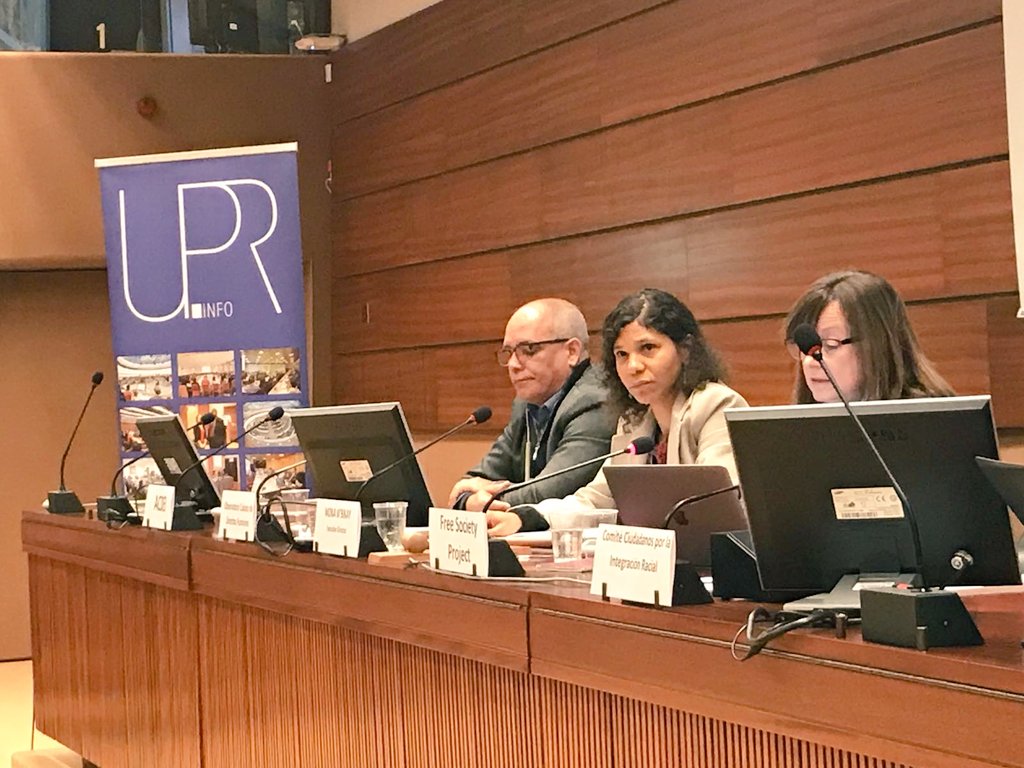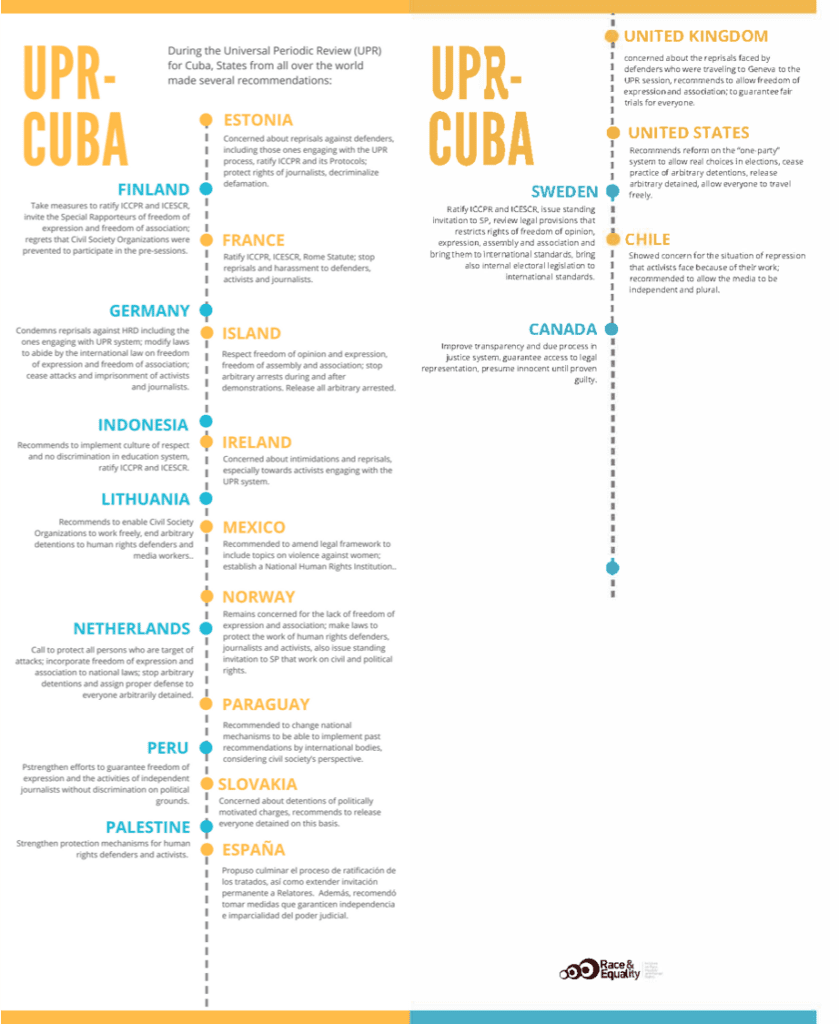DID CUBA TELL THE WHOLE TRUTH TO THE HUMAN RIGHTS COUNCIL DURING THE UNIVERSAL PERIODIC REVIEW – UPR?
Several human rights defenders from Cuba considered a Country Report presented to the United Nations’ Human Rights Council as “false” after hearing the presentation of Cuba’s Minister of Foreign Affairs, […]

Several human rights defenders from Cuba considered a Country Report presented to the United Nations’ Human Rights Council as “false” after hearing the presentation of Cuba’s Minister of Foreign Affairs, Bruno Rodriguez. The report, once again, fails to paint an accurate picture of the existing situation of repression and violation of fundamental rights experienced by members of civil society in the island (watch a recording of the Cuba UPR review here).
On Wednesday, May 16, the Cuban state underwent its third Universal Periodic Review process – a mechanism of the UN Human Rights Council, in which Member States weight in on the country’s human rights situation and offer recommendations to the State, such as the ratification of treaties like the International Covenant on Economic, Social and Cultural Rights and the International Covenant on Civil and Political Rights signed by Cuba in 2008. The Member States strongly denounced repeated attacks, acts of hostility, and intimidation against human rights defenders and expressed their concern at the lack of freedoms of opinion, expression, and association afforded to the Cuban population. The States also condemned the travel restrictions placed on human rights defenders, some of whom were scheduled to participate in the UPR (both the review and the Pre-Session).
The following infographic lists some of the recommendations of the different member states to the Cuban government.
According to reports by the independent Cuban newspaper “Diario de Cuba”, in response to the recommendations by member states, the Cuban government dismissed demands to respect fundamental freedoms. They also denied that persons who speak out against the government are being prohibited from traveling or that reprisals are being carried out against human rights activists. Instead, the State’s representatives argued that only individuals who fight in favor of a Communist revolution are worthy of being called human rights defenders in Cuba. “Agents of a foreign government” serving an external agenda that seeks to undermine the legal and political order that Cubans have “freely elected” are not considered human rights defenders. The State also stressed that as a sovereign entity, it has the right to determine its own interpretation of human rights and that existing US sanctions will not be allowed to interfere with the social and economic development of the island.
At Race and Equality, we observe with concern the lack of visibility of the actual situation of human rights in Cuba as we are witnesses to the harassment, retaliation and persecution that many human rights defenders in Cuba are forced to endure. We strongly condemn the Cuban State’s denial of its constant attacks against freedom of speech, opinion and association, and of movement, which are aimed at opposition members of Cuban civil society. We also denounce the arbitrary travel restrictions the State has placed on dozens of human rights activists.


